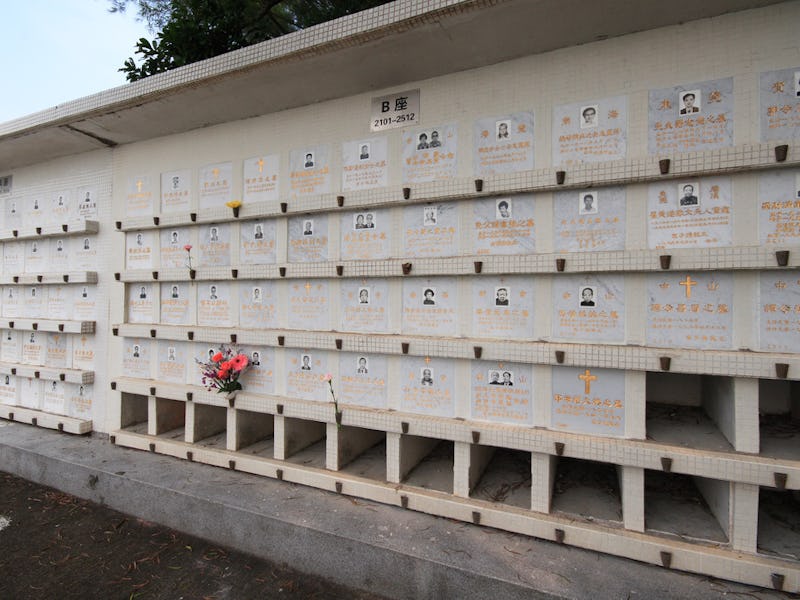China's Cremation Tournament Is a Death Race From the Overpopulated Future
In a country where 10 million people die annually, disposing of bodies is a political and practical issue.

A Chinese government tournament is pitting cremation workers against each other in a race to burn bodies cleanly. The winners of the national competition, which is currently under way, will receive a Labor medal from China’s trade union federation as well as, one presumes, a fair amount of publicity. The rather morbid event is intended to encourage Chinese to pursue cremation training as their country urbanizes, grows, and attempts to avoid being buried under its own dead.
Cremation is more common in China than in the U.S.. A majority of Chinese — just over 50 percent — are cremated after death and that number is going up. This is largely for practical reasons. Roughly 10,000,000 people die in China annually, meaning graveyards would take up vast tracts of land the government wishes to use for agricultural projects. Traditional burial has also fallen out of favor in China for the same reason it has in the U.S.: With more people living in cities, it’s impractical and seemingly purposeless for families to bury their dead in fields far from their apartments. That said, the Chinese trend is also informed by a more sordid history.
Whereas cremation in America is associated with agnosticism, in China it’s associated with communism. Under Mao Tse-Tung, cremation was periodically and locally mandated. For many Buddhists, who traditionally burn bodies, this didn’t represent a religious problem, but ancestor worship, a cultural holdover from Confucianism, dictates that corpses should be left alone lest familial connections be broken. In March of this year, The Los Angeles Times reported that elderly people in some Chinese provinces were killing themselves because they feared cremation mandates would be enacted. Still, those deaths should not be interpreted as a broader rejection of modern body disposal practice. Last May, a Chinese amusement park named “Window of the World” debuted a cremation simulator know as, predictably, “The Cremator.” The Daily Mail reported long lines.
The cremation contest is certainly propaganda, but at least one idea that it propagates, environmental responsibility, is good for the living. When burned, human bodies release benzenes and acetone, compounds that can form polychlorinated dibenzodioxins and polychlorinated dibenzofurans during the incineration process. Both of those byproducts are carcinogens. Beyond that, there is the potential to release mercury vapor and hydrogen chloride gas. If cremation solves a land-use problem, it creates an air quality issue — something China’s cities are already familiar with.
In a statement, the Ministry of Civil Affairs of the People’s Republic of China said the competition would “cultivate talent, find talent, encouraging talent.”